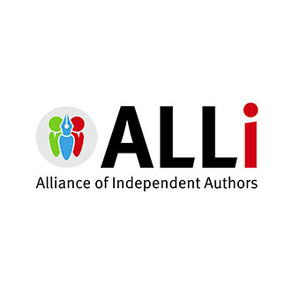Melissa Addey, ALLi Campaigns Manager
What is “writing to market”? The phrase is tossed around a lot in author circles, and especially in independent publishing. The concept involves creating content specifically tailored to what’s currently in demand for readers, maximizing the chances of commercial success by writing what readers are actively seeking. You research popular genres, tropes, and themes and follow current trends, such as deciding to write a Post-Apocalyptic Sci-Fi novel because that genre is currently trending. It’s an approach that gained popularity in self-publishing circles in part because the quicker timelines in self-publishing allow for a fast response to whatever is currently trending.
Even in traditional publishing, there is often a desire to cling to a bestselling trend and refuse to countenance a genre or topic that does not seem in fashion. When she was first querying, JK Rowling was reportedly told that stories about wizards and magic were not on trend. On the opposite end of the spectrum, as an agented author when Fifty Shades of Grey came out, I recall my agent ringing me to see whether I was interested in writing Erotica. I declined, but clearly many authors were coaxed to go that route, as a year later, bookstores were crammed with near-identical covers for near-identical storylines. The difference, of course, is that in traditional publishing, a book will not see the light of day for at least a year and possibly longer. A fast indie author, by contrast, could write and publish a book in a few months.
While writing to market may make it easier to garner sales and reader interest, it can also constrain your creativity and interfere with developing confidence, uniqueness, and authenticity. In this era of global audiences and the internet, niche subjects can still find significant readership, especially when you consider the “long-tail” effect of digital markets—selling fewer products consistently over longer stretches of time rather than selling many volumes of a work at once. Although mainstream bestsellers can get plenty of attention, an array of niche interests have emerged over the past decades, each with their own significant global market. According to the 2023 Indie Author Income Survey, commissioned by the Alliance of Independent Authors (ALLi), authors from the LGBTQIA+ community, some of whom have been rejected by traditional publishing previously for being too niche, were in fact doing extremely well in self-publishing—out-earning straight authors at a difference of 20 percent—because they fully understood their audience and could deliver what they wanted.
Passion Projects
Connecting with your passion means you’re more likely to create engaging, high-quality work that resonates with readers. As generative AI continues to develop, readers are drawn to authors with a human touch and who write with authenticity and passion. Even if a particular subject matter or approach isn’t mainstream, it can find sufficient readers to make a living.
Of course, passion alone is not enough. Success also depends on your level of writing skill and publishing skills, and sometimes just on chance. But accessing the power of your passions doesn’t just ensure that you enjoy your work and increase your creative energy and capacity; it has practical application in your writing, book production, and marketing, clarifying your options and honing your focus.
By better understanding your own writing passions, you can engage in market research to find out where your passionate readers are. These are the right readers for your work. They have already self-identified and organized themselves in groups that you can access, such as trade magazines, online message boards, social media accounts, hobby groups, and other outlets. Once you can clearly identify your passion, research existing genres and niches that align with your interests. Look for books, authors, and trends that share similarities with your work and help you determine where your book fits within the larger picture.
As you explore the market, think about how you can further refine your book’s position. This might involve identifying a specific subgenre or a unique combination of elements that distinguishes your work from others. You can also, in becoming better aware of what a particular readership enjoys, lean into their preferences from your own passions. Do readers of Regency Romance prefer a duke to an earl? Consider promoting your hero to a higher rank. Do nonfiction readers like case studies? Then include those in your book. Do children’s books with an associated activity included at the end fly off the shelves? Then help those parents. Knowing that a series is likely to sell better than a stand-alone book does not mean you should never write another stand-alone, but you could spend an extra hour of your time considering whether there is scope for developing a series. Knowing your passions and understanding the market and your place in it is a winning combination.
A couple of interesting exercises and a thought-provoking podcast episode to leave you with:
What do you love? If you’re a newer author, reflect on what most excites you about your own writing and the books you most love to read. What do they have in common? If you’re like most people, you have several passions reflected in your reading and writing. What do you most enjoy reading and writing about, under the four headings of theme, character type, setting, and style?
What do your readers love about you? For established authors, spend a little time reading your best reviews. What do your readers most often mention? Try making a word cloud of their reviews to see what emerges; the results may offer new insight into what your readers hope to find in future works.
Use your creative passion to discover your niche. In the May 21, 2023, episode of the Creative Self-Publishing Podcast, ALLi founder and Director Orna Ross discusses using your creative passion to discover your genre, niche, and micro-niche with podcast producer Howard Lovy. Listen to it at: https://selfpublishingadvice.org/creative-passion.
Melissa Addey, ALLi Campaigns Manager


